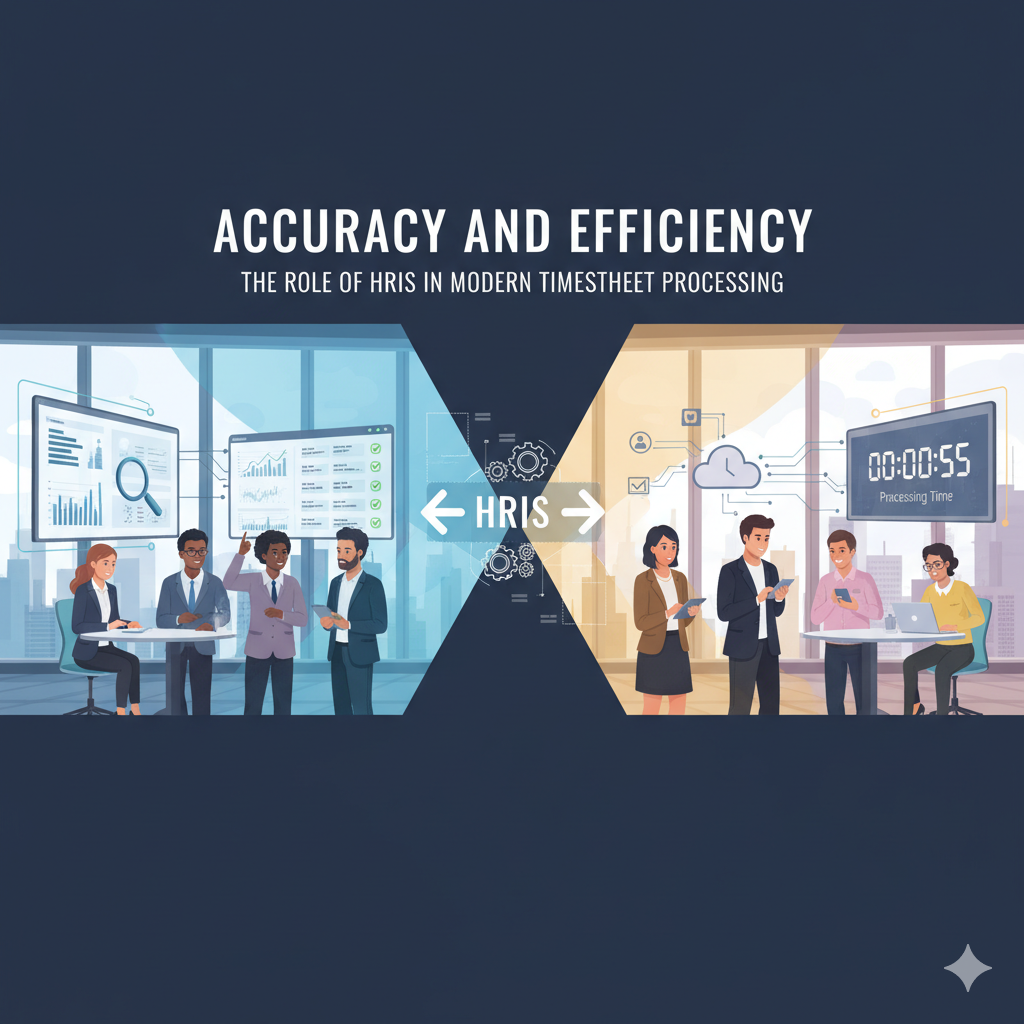In today’s fast-paced business world, managing employee time accurately is crucial. From tracking attendance to ensuring correct payroll, timesheet processing plays a vital role in every organization’s HR operations. Yet, traditional manual systems often lead to errors, delays, and inefficiencies.
That’s where the Human Resource Information System (HRIS) comes in — transforming how businesses manage, record, and process employee time.
What Is Timesheet Processing in HRIS?
Timesheet processing refers to the method of recording and calculating employees’ working hours, overtime, absences, and leaves. In a modern HRIS system, this process is fully or partially automated.
Instead of relying on paper forms or spreadsheets, HR teams can manage all time-related data in one integrated digital platform.
This means fewer errors, faster approvals, and seamless synchronization with payroll.
Why Accuracy Matters in Timesheet Processing
Accurate timesheet data ensures:
- Fair compensation — employees are paid correctly for the time they work.
- Regulatory compliance — organizations stay compliant with labor laws and overtime policies.
- Reliable insights — accurate data helps HR managers identify trends like absenteeism or overtime spikes.
Even minor errors in manual entry can lead to incorrect payrolls, employee dissatisfaction, and potential legal issues.
An HRIS eliminates these risks by automating time capture and validation.
How HRIS Improves Accuracy
A well-designed HRIS ensures accuracy through:
- Automated Time Tracking
Employees can clock in and out through biometric devices, mobile apps, or web portals. The system records data in real time — eliminating manual entry errors. - Integration with Payroll
Since HRIS platforms connect directly with payroll modules, there’s no need for duplicate data entry. Pay calculations automatically use verified timesheet data. - Rule-Based Validation
Custom rules prevent invalid or incomplete submissions — for example, missing approvals or inconsistent shift hours trigger automatic alerts. - Centralized Data Management
All attendance, leave, and scheduling data are stored in one secure place, ensuring consistency across departments.
How HRIS Boosts Efficiency
While accuracy minimizes errors, efficiency reduces workload and processing time.
- Faster Approval Workflows
Supervisors receive instant notifications to review and approve timesheets digitally. No more chasing paper forms or email threads. - Real-Time Reporting and Dashboards
HR managers can generate instant reports on attendance, overtime, and productivity — saving hours of manual data compilation. - Seamless Integration with Other HR Functions
HRIS connects timesheets with leave management, scheduling, and performance data, creating a 360° view of workforce management. - Reduced Administrative Burden
Automation frees HR professionals from repetitive tasks, allowing them to focus on strategic HR functions like talent development and employee engagement.
The ROI of Automating Timesheet Processing
Companies that switch to HRIS-based timesheet management often experience:
✅ Up to 80% reduction in time spent on payroll preparation
✅ Significant drop in payroll discrepancies
✅ Enhanced employee satisfaction due to timely and accurate payments
✅ Data-driven decision-making for workforce optimization
These improvements lead to faster operations, reduced costs, and stronger HR performance overall.
Key Takeaways
- Implementing HRIS for timesheet processing is no longer a luxury — it’s a necessity for modern organizations seeking accuracy, compliance, and operational excellence.
- By automating time tracking and integrating payroll workflows, HRIS systems eliminate human error, streamline processes, and empower HR teams with real-time insights.
Final Thoughts
The future of HR management lies in automation and data-driven decisions.
Adopting an HRIS system for timesheet processing ensures your organization stays competitive — accurate in numbers, efficient in operations, and trusted by employees.
If your company hasn’t explored HRIS yet, now is the perfect time to experience its benefits through a free trial or demo before making an investment decision.

